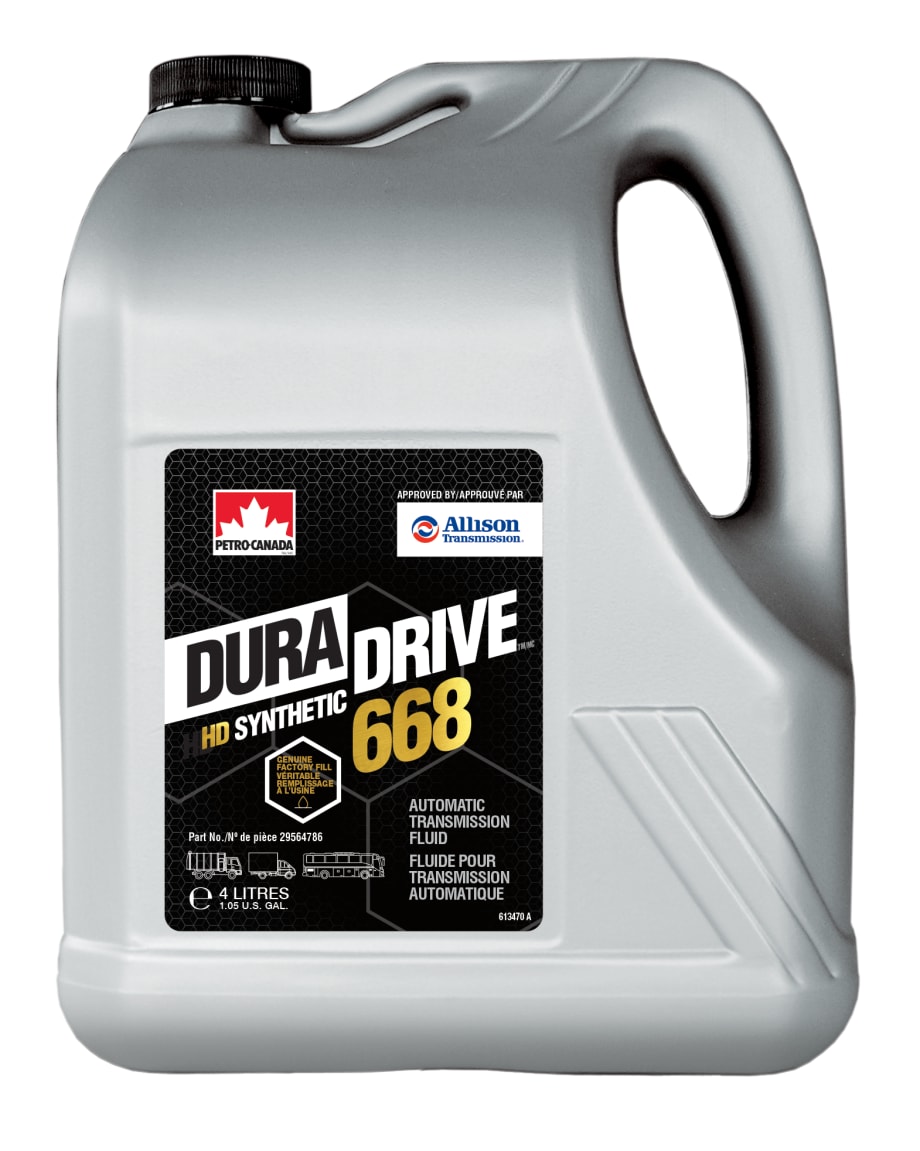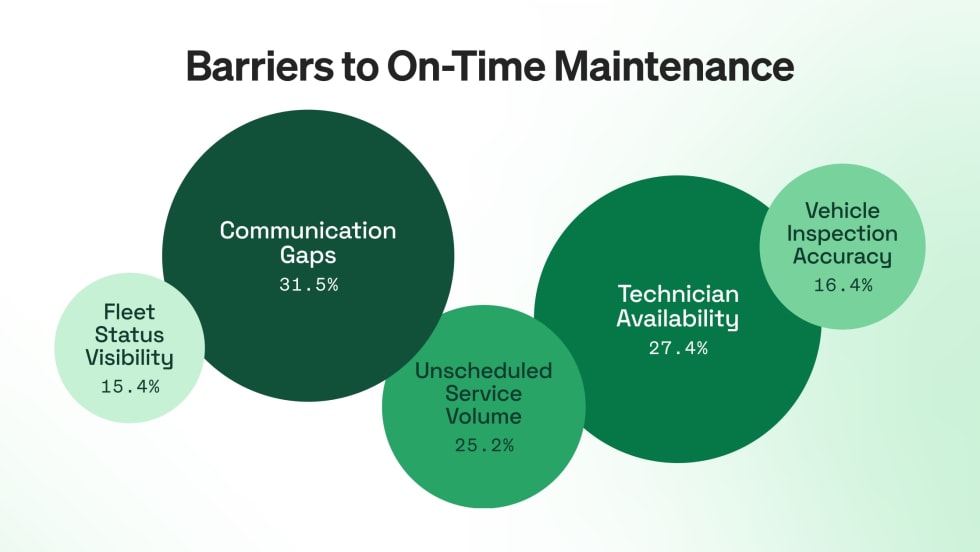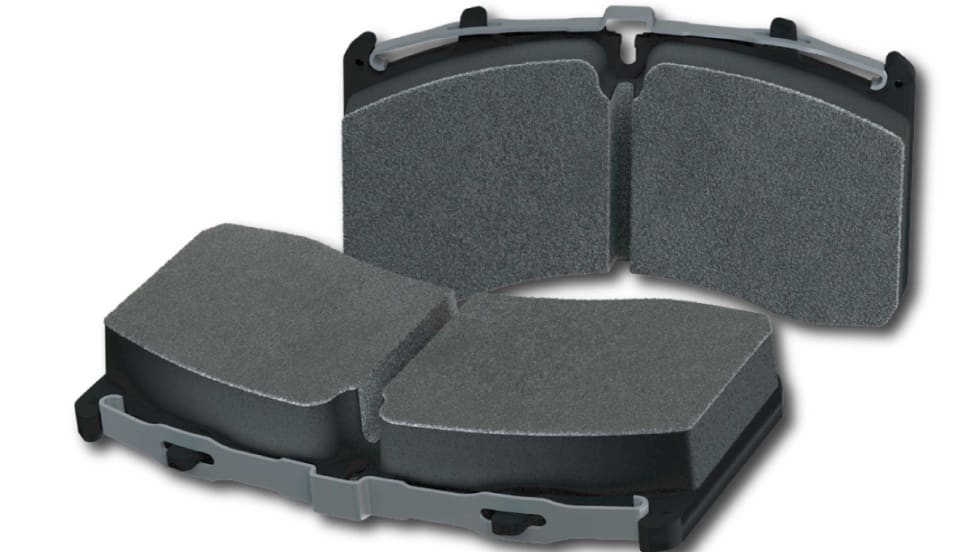Allison Transmission has a new lubricant spec for its automatic transmissions, and Petro-Canada Lubricants is the first oil company to meet it. The new DuraDrive HD Synthetic 668 will be the factory fill in Allison automatic transmissions starting Jan. 1, 2021.
Allison’s new TES 668 is a modern formulation with many advantages compared to mineral-based, non-synthetic fluids, according to the transmission maker. This next generation transmission fluid is specified for all Allison 1000 Series, 2000 Series, 3000 Series, and 4000 Series automatic transmissions.
TES 668 builds on the previous TES 295 transmission fluid spec in a number of key areas, such as oxidative stability, anti-wear performance and friction modifier durability, according to Allison. These factors improve the quality of the shifts and reduce the noise, vibration and harshness experienced as the fluid ages. Better friction performance provides more consistent clutch application—even across temperature variations and load sizes.
The new spec allows Allison to back long drain intervals, even when operating under heavy loads. For Allison there are two drain intervals – a standard drain interval linked to Allison-approved TES 389 fluids, and extended drain interval linked to Allison-approved TES 295 fluids. DuraDrive HD Synthetic 668 will have the same extended drain recommendation as TES 295 fluids.
The new oil is specified for on-highway vehicles, including vocational applications, and is fully backwards compatible for every Allison transmission that requires an Allison-approved TES 295 fluid.
Benefits include:
Smoother performance: Anti-shudder and torque control mean it’s easier to drive, with smoother acceleration and faster point-to-point acceleration, even under demanding conditions.
Maximum durability: Excellent oxidation control helps shield components from damage caused by sludge, varnish, and corrosion, for improved fluid life and transmission component life.
Enhanced protection: Improved wear protection means longer transmission life.
Petro-Canada officials touted the extensive testing the oil went through. It involved thousands of hours of severe testing in an Allison transmission done at conditions beyond standard operating parameters. DuraDrive HD Synthetic 668 has been fully tested in frigid North American winter conditions and in the heat of the desert to ensure its ability to handle temperature extremes.
For instance, the ABOT (aluminum beaker oxidation test) showed the oil offers 14 times better oxidation control than the requirements, as well as excellent oil thickening control. In anti-shudder durability testing, it performed twice as well as the requirements. Optimal wear protection improvement was confirmed with the FZG ASTM D5182 test.
The 99.9% pure synthetic base oil provides exceptional volatility control, according to the company.
"There are two important factors when formulating a fluid – volatility control and oxidation control," Sonia Hevia, product specialist – transmissions at Petro-Canada Lubricants, told HDT. "The right combination of base oil and additive technology brings you to the level of oxidation control that we see with DuraDrive HD Synthetic 668."
Petro-Canada officials said the new oil gives customers an immediate opportunity to maximize their uptime and reduce maintenance downtime and costs, upgrade their performance, and extend their asset life.
Allison Transmission is in the process of providing additional approvals for multiple oil marketers.














